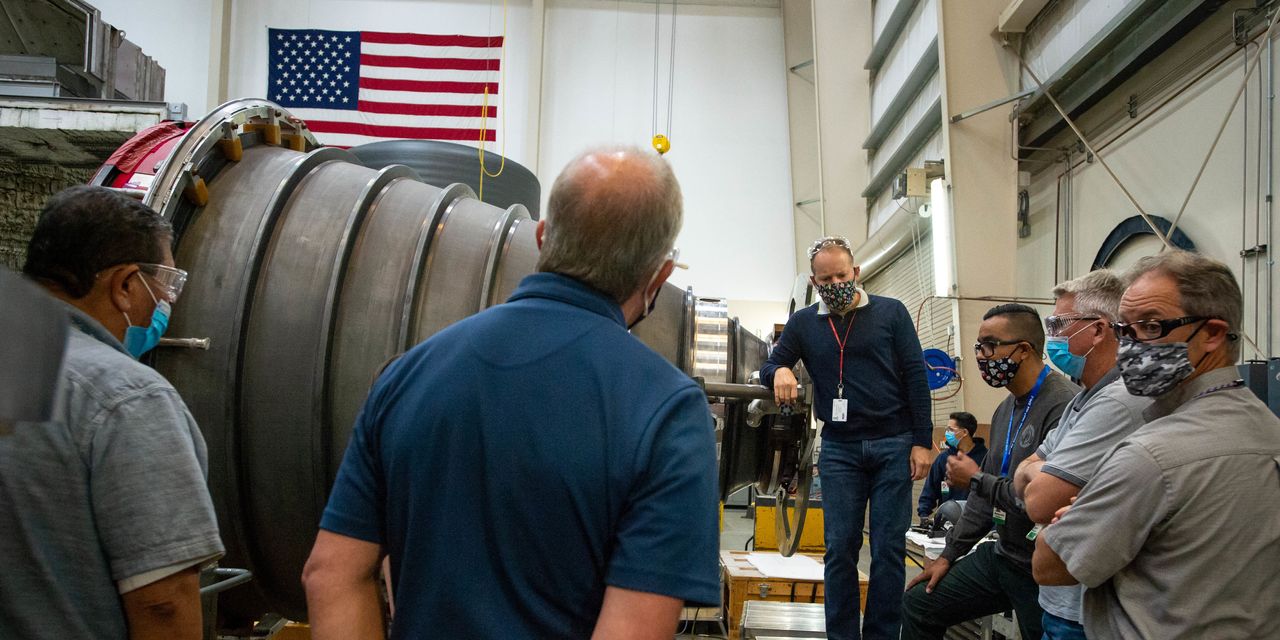
After three decades, defense may not be a buyer’s market anymore.
This week, the Federal Trade Commission filed an antitrust lawsuit that seeks to block Lockheed Martin’s LMT 1.05% $4.4 billion plans to acquire rocket maker Aerojet Rocketdyne, arguing that it “would allow the combined firm to use its control of Aerojet to harm Lockheed’s rivals in ways that would substantially lessen competition in multiple markets for products critical to the national defense.”
Aerojet Rocketdyne, itself the result of a 2012 merger, is the last large independent U.S. manufacturer of engines for rockets and missiles. Its direct competitor, Orbital ATK, was bought by Northrop Grumman in 2018.
Dozens of major companies played in the U.S. defense industry in the 1990s. Now there are a handful of mega-conglomerates. With some exceptions, even megadeals like the 2019 tie-up between United Technologies RTX 1.18% and Raytheon have been allowed.
This latest development appears to confirm that it won’t be the same under President Biden, FTC Chairwoman Lina Khan and Attorney General Merrick Garland. They have pledged a different, tougher approach to antitrust more generally, torpedoing high-profile deals such as the $30 billion combination of insurance brokers Aon and Willis Towers. The Pentagon also is increasingly led by critics of consolidation, such as Deputy Secretary of Defense Kathleen Hicks.
Investors were still caught off guard by the FTC’s decision, which prompted a roughly 19% drop in Aerojet’s stock Tuesday. The company isn’t really Lockheed’s competitor, but its supplier: It gets about a third of its revenues from the bigger company by, for example, powering Atlas rockets and Thaad missiles. The Northrop-Orbital deal, which was a very similar case of vertical integration, was allowed with the usual “conduct remedies.” If the FTC wins its Aerojet case, the drastic divestiture required would likely make the acquisition unpalatable.
The new approach is consistent with antitrust officials’ aim to move beyond the sole focus on “consumer welfare” popularized by the “Chicago School” of economics in the 1970s and instead take into account issues such as companies’ market power over suppliers. Aerojet is often the sole provider of “critical propulsion technologies” that could potentially be closed to Lockheed’s competitors.
Sam Weinstein, Cardozo Law professor and former antitrust attorney under the Obama administration, underscored that the lawsuit received support from the FTC’s two Republican commissioners as well as the two Democrats. “This is a strong case that is in the heartland of what mainstream antitrust folks believe is a good use of resources,” he said.
Research suggests that the Pentagon won’t necessarily get better prices by deterring consolidation among its contractors. In fact, being able to lean on Lockheed’s balance sheet might have allowed Aerojet to bid more aggressively, just like Northrop-Orbital used their combined power to become the sole bidders for the first phase of the government’s $85 billion intercontinental ballistic system. Because of this, Lockheed’s gains from the deal weren’t clear-cut: Its shares rose 4% on Tuesday as investors anticipated that money earmarked for the deal could be paid in dividends and buybacks instead.
SHARE YOUR THOUGHTS
Does blocking Lockheed Martin’s acquisition of Aerojet signal the end of defense consolidation? Why or why not? Join the conversation below.
To be sure, Lockheed can still choose to contest the decision. More broadly, consolidation strategies were already running out of road: As Capital Alpha Partners analyst Byron Callan points out, there aren’t that many good acquisition targets left beyond some specific segments.
But there were still a number of medium-size defense stocks buoyed by deal potential. It was part of the recent case for buying Aerojet’s shares. Similarly, the possible sale of Mercury Systems to a big contractor, which was being peddled by activist investors, seems now less likely.
Defense stocks, known for being boringly reliable dividend payers, may have just gotten even more boring.
Write to Jon Sindreu at [email protected]
Copyright ©2022 Dow Jones & Company, Inc. All Rights Reserved. 87990cbe856818d5eddac44c7b1cdeb8








